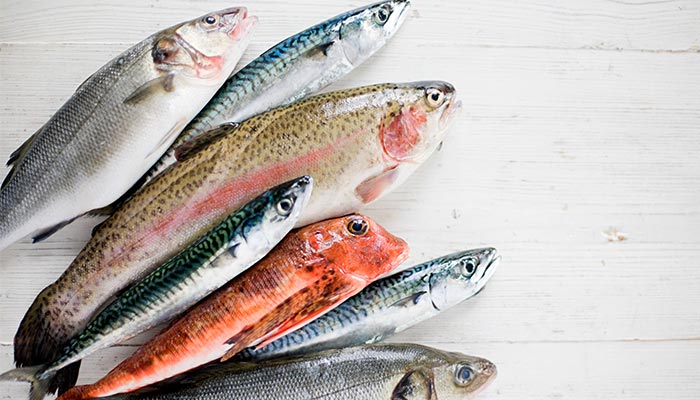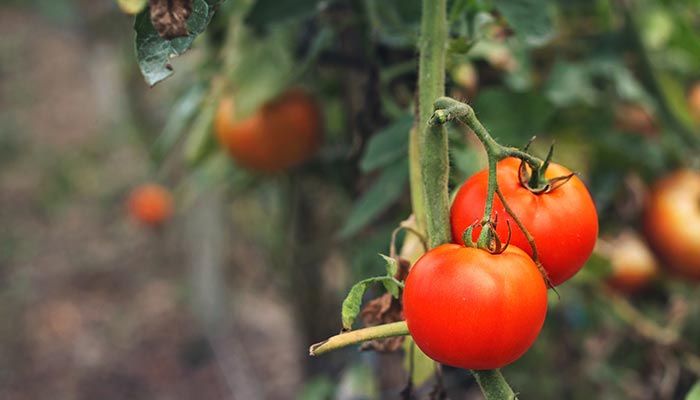A new study conducted by Macquarie University public health researchers has found Australians aged 18 to 25 are interested in a more environmentally friendly way of eating, but many feel they don't know where to start or lack the food preparation skills necessary.
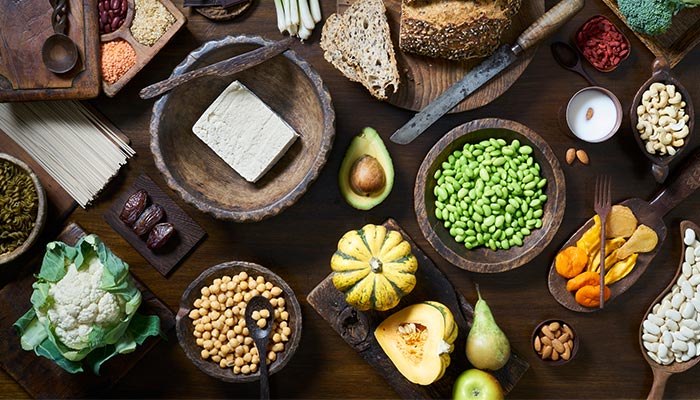
Climatarians: Young adults are keen to improve their knowledge of what constitutes a healthy and sustainable diet.
In general, a sustainable diet involves reducing animal proteins in favour of plant-based alternatives, eating locally produced food when it's in season, and choosing food that uses land, water, and other resources responsibly.
Public Health researcher Dr Rimante Ronto is the lead author on a paper published recently in Public Health Nutrition, and says, as well as a lack of knowledge, the subjects cited other barriers including availability and accessibility of environmentally friendly options and the cost of a sustainable lifestyle and healthy diet.
"Cooking other types of protein, like beans and legumes, is often far cheaper than buying meat, but it can be challenging knowing what to do with them if you don't have that experience," Ronto says.
"Further research is needed on a larger scale to confirm our findings, but there is clearly a need to help young people improve their knowledge not only of what constitutes a healthy and sustainable diet, but how to prepare these types of food for themselves.
"We also need to promote food environments – the places where we're choosing what to eat, like supermarkets and food courts – that make it easy to pick food that is healthy and environmentally sustainable.
"In some places, it's much easier to find multiple fast-food options than it is to find fresh food to prepare at home."
Variety works: A sustainable diet can also include small amounts of fish, red meat and dairy.
What does a sustainable diet look like?
Transport and energy production are often thought of as the biggest contributors to greenhouse gas emissions, but between 21 per cent and 37 per cent of those emissions are due to the way we produce and consume food.
At the same time as our agriculture and food production systems are costing the planet, our poor dietary choices are costing us in terms of our health.
Many of us – especially in high-income countries like Australia – are not meeting the Australian Dietary Guidelines for Healthy Eating, more specifically not consuming enough fresh fruit, vegetables and whole grains and over-consuming foods high in salt, sugar and saturated fats. More than 11 million people worldwide die every year due to avoidable dietary risk factors.
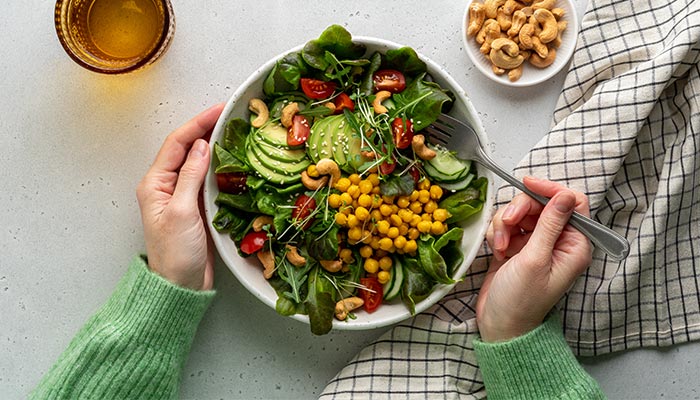
Conscious eating: Climatarians take into account production methods for all types of food.
How to lessen your impact on the Earth
Ronto say it is possible to solve both these problems simultaneously by eating in a way that is good for our health and for the environment.
"In the past few years, people have been giving more thought to how what they are eating might be contributing to the climate crisis," she says.
"A sustainable diet is mostly plant-based, but it can include small amounts of fish, red meat and dairy products. It's rich in fresh fruit and vegetables and whole grains, low in refined carbohydrates like white flour and sugar, and puts an emphasis on not eating more than your body needs.
"Some people are already used to thinking in terms of reducing the amount of red meat they eat because cattle production is such a big contributor to greenhouse gas emissions.
"The sustainable diet takes the concept further, looking at the impact of all animal husbandry, including dairy, and taking into account production methods for all types of food, including the use of land, water and other resources."
Food miles are a big consideration, along with unsustainable production practices, like clearing rainforest to plant crops or graze cattle, or growing crops, like rice, that require large amounts of water in drier climates.
Self-sufficiency: Growing your own produce is a great way to lessen your food miles.
How we can all eat more sustainably
Ronto stresses that a sustainable diet doesn't mean that we can never have red meat again.
Instead, she recommends being more aware of the impacts of our choices and taking small steps by reducing and substituting where possible.
"Meat-free Monday is a popular way of reducing meat consumption," she says. "Other alternatives could be only having meat once a week or having a meal every day that includes no animal products.
Growing your own produce and sharing or trading with friends, family and neighbours will always be a great option, even if you start as simply as a few potted tomato plants on a balcony.
"Oat or soy milk is the most sustainable, and almond milk is less environmentally friendly due to the high volumes of water required to grow almonds."
Growing your own produce and sharing or trading with friends, family and neighbours will always be a great option, even if you start as simply as a few potted tomato plants on a balcony.
Joining a local food co-op, where people get together to bulk-buy at wholesale prices, gives you the chance to choose where your food is coming from and save money at the same time.
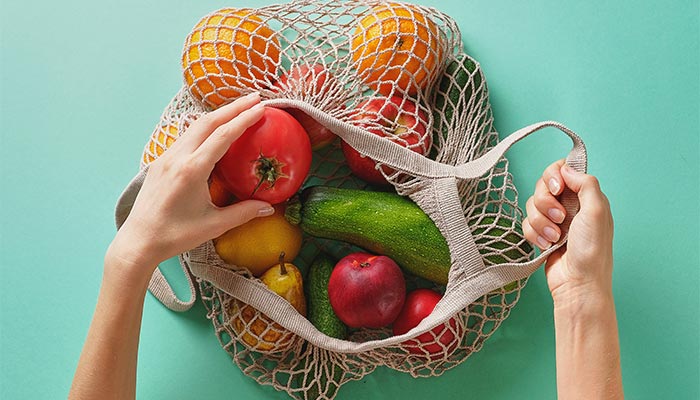
Shop smart: Join a local food co-op to source just-plucked produce and bulk-buy at wholesale prices.
"There are lots of small things you can do to eat more sustainably and healthily, so nobody should feel discouraged," Ronto says.
"Any change you can make is a step in the right direction."
Tips for more sustainable eating
- Reduce meat, fish and dairy and substitute with protein-rich tofu, lentils, nuts and seeds.
- Check the labels – find out where your food is coming from and what it contains.
- Eat locally produced food in season, which is more affordable.
- Cook at home – skip the fast food, which tends to contain a lot of meat, saturated fats and refined carbohydrates – .
- Don't buy more than you need and use everything you do buy.
- Shop for fresh produce more often and use up items that are nearing their use-by dates for soups and smoothies.
- Embrace less-than-perfect fruit and vegetables, which are thrown away every year.
- Drink tap water and carry a refillable bottle.
Dr Rimante Ronto is a senior lecturer and researcher in Public Health in the Department of Health Sciences at Macquarie University.

